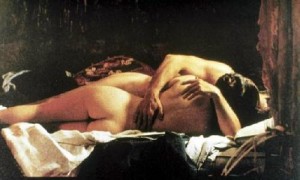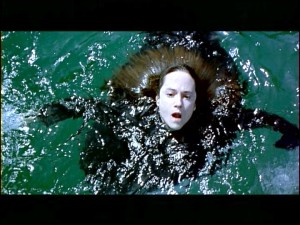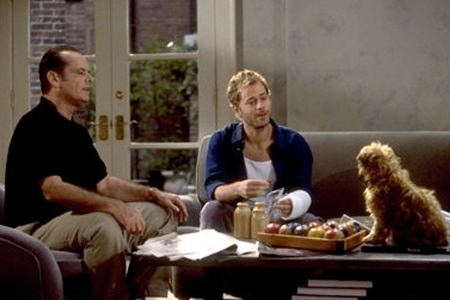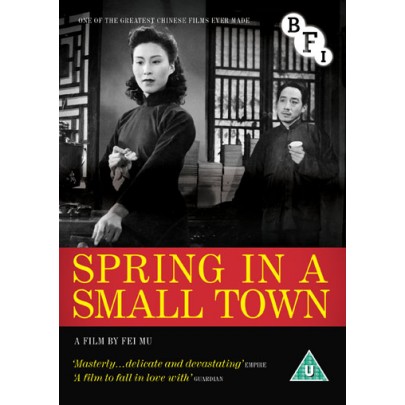Written for the 120th and final issue of Trafic, Fall 2021, where it appears in Jean-Luc Megus’ French translation. Contributors to this special issue were invited to write about something treasured, bearing in mind the quote from Ezra Pound that’s cited. — J.R.
“I never know how I should end my solos,” John Coltrane reportedly once said to Miles Davis, to which his boss gruffly replied: “Try taking your horn out of your mouth.”
Coltrane’s conceptual orientation versus Davis’s blunt practicality can be felt in the former’s symmetrical, multi-note flurries and rude honks up and down scales, furiously covering almost every available silence with his “sheets of sound”, and the latter’s jagged, elliptical smears and little-boy cries separated by sudden pauses that often register like either interruptions or abrupt afterthoughts, second-guessing himself.
An almost sexual alternation of giving and withholding in a jazz solo becomes a tug of war between conflicting formal as well as sexual impulses — Davis’s version of coitus interruptus versus Coltrane’s giddy flirtations and unresolved foreplay. It persists throughout director Fei Mu’s and screenwriter Li Tianji’s extraordinary Spring in a Small Town (1948), a troubled and troubling piece of cinematic chamber music that seems all the more passionate yet intensely bottled up during the romantic and sexual frustrations of the Coronavirus pandemic. Read more
From the Chicago Reader (December 10, 1993). — J.R.

THE PIANO
*** (A must-see)
Directed and written by Jane Campion
With Holly Hunter, Harvey Keitel, Sam Neill, Anna Paquin, Kerry Walker, Genevieve Lemon, Tungia Baker, and Ian Mune.

Given how sexy and volatile it is, it’s no surprise that The Piano is a hit. It’s also no surprise, given the strong-arm tactics of the distributor and the hype of some reviewers, that a certain critical backlash is already setting in, as evidenced by a lucid and considered dissent by Stuart Klawans in the Nation and a rather lazy dismissal by Stanley Kauffmann in the New Republic. People like myself who are passionate fans of Jane Campion’s previous work may be somewhat churlish that many other people are finding their way to her work only after it has become juiced up, simplified, and mainstreamed — like the people who bypassed the dreamy finesse of Eraserhead on their way to the relative crudeness of Blue Velvet. It’s certainly regrettable that viewers who weren’t interested in seeing Campion’s 1989 film Sweetie until after they saw The Piano now have to contend with a lousy video transfer that doesn’t begin to do justice to Campion’s colors and compositions. Read more
From the Chicago Reader (December 29, 1997). To tell the the truth, over 17 years later, I’m a little embarrassed about having given this movie four stars. For all my affection for James L. Brooks, in spite of everything (and including his most recent picture, the much-reviled How Do You Know), this is far from being his best work. — J.R.

As Good as It Gets **** Masterpiece
Directed by James L. Brooks
Written by Mark Andrus and Brooks
With Jack Nicholson, Helen Hunt, Greg Kinnear, Cuba Gooding Jr., Skeet Ulrich, Shirley Knight, Yeardley Smith, Lupe Ontiveros, Jesse James, and Jill.
As a TV illiterate who probably hasn’t watched a sitcom regularly since The Honeymooners, who’s never seen Taxi, Rhoda, Lou Grant, Room 222, or The Tracey Ullman Show, and caught only the final episode of The Mary Tyler Moore Show, I don’t know much about the world James L. Brooks sprang from as an artist. In fact, apart from several episodes of his two cartoon series, The Simpsons and The Critic, I don’t know his TV work at all. And as someone who regards movie test-marketing as one of the sleaziest, most destructive practices in Hollywood, I’m more than a little skeptical about a writer-director-producer who believes in it so religiously that after the previews of his previous feature, the musical I’ll Do Anything, he recut it so extensively he made it a nonmusical. Read more
By Jonathan Rosenbaum
I’ve been getting increasingly suspicious of ten-best lists–maybe because the studios have been treating them as increasingly important. I’ve always regarded such list making as a critical activity, a form of stocktaking that benefits critics and audiences alike. But it’s becoming obvious that studios value the lists only as a part of their ad campaigns, and they seem to arrange their multiple end-of-the-year screenings and mail out their numerous “screener” videos for the press accordingly. Why else are so many reviewers implausibly claiming that most of the best movies of 2000 came out during the last two weeks of the year or haven’t even surfaced yet? Are they suffering from amnesia? Or are they simply going for the bait?
The studios define the year according to when movies open in New York and Los Angeles, where they’re often first screened in November and December so that they qualify for that year’s Oscars. As a consequence, critics in what the studios see as the hinterlands, including Chicago, are being encouraged to put movies on their ten-best lists that their readers can’t see for some time.
If studios cared about the services performed by criticism–which range from providing background information and an overall context for new releases to launching discussions about their subjects and explaining why these movies matter–they’d try to let critics see films shortly before they have to review them. Read more





